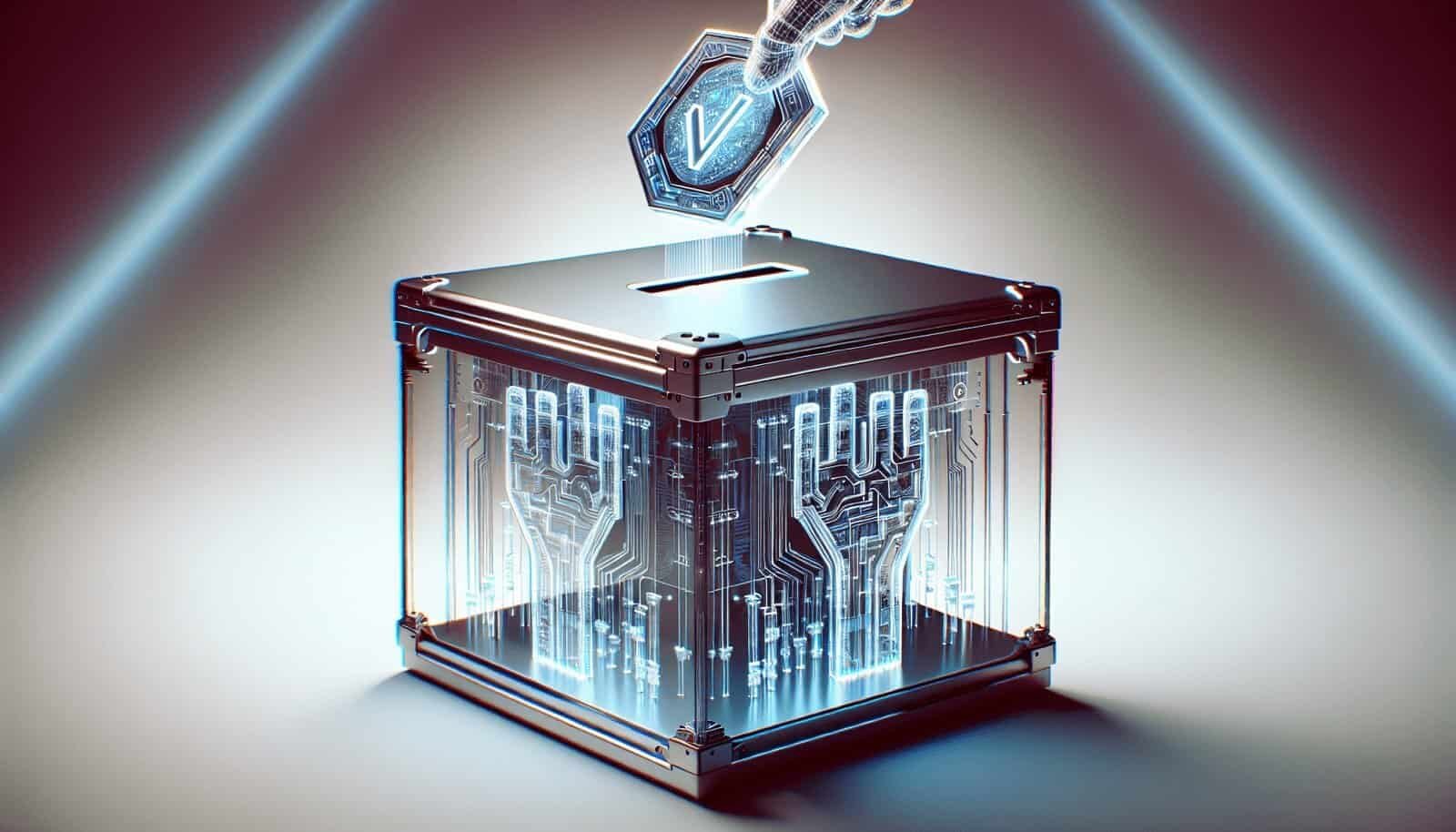Have you ever wondered what the best tokens for governance and voting are? As blockchain technology continues to evolve, so does its potential to change how we make decisions collectively. The idea of using tokens for governance is rapidly gaining traction across the world of decentralized finance (DeFi) and other blockchain ecosystems. These tokens hold the power to transform how organizations drive their decision-making processes, making participation both accessible and equitable.

Understanding Governance Tokens
Before diving into the specifics of the best governance tokens, it’s crucial to comprehend what exactly a governance token is. In the simplest terms, governance tokens are digital assets that bestow your right to vote in the decision-making processes of decentralized networks. These tokens are typically native to platforms built on blockchain technology, allowing holders to influence changes and upgrades on the network.
By holding governance tokens, you effectively get a say in various aspects of the project’s development, such as technical upgrades, protocol changes, and even distribution of resources. This empowerment represents a shift from traditional centralized control, offering a more democratic approach to organizational management.
The Functionality of Governance Tokens
The primary purpose of governance tokens is to provide a system for decentralized decision-making. Token holders can propose new initiatives or vote on existing proposals, which can range from small changes, like interface upgrades, to more significant shifts, like protocol alterations. This participatory model ensures that the community has a voice, potentially leading to more robust and resilient networks.
In a typical blockchain network, governance tokens serve as a tool to mitigate centralized control, redistributing power across a broader community. They aim to achieve decentralized governance, where no single entity holds overwhelming control over the decision-making process.
Key Considerations When Choosing Governance Tokens
Not all governance tokens are created equal, and there are essential factors to consider when evaluating them. Below are the key considerations to assist you with making informed choices:
1. Purpose and Use Case
Understanding the purpose of a governance token is fundamental. Each token is designed with specific objectives and functionalities in mind. Some networks utilize their tokens strictly for protocol governance, while others may offer additional utilities, such as staking rewards.
2. Community Involvement
A vibrant and engaged community is vital for the success of any governance token. Tokens with active participants tend to drive innovation and adaptability through collective intelligence.
3. Decentralization Level
The degree to which a network is decentralized can significantly impact its governance model. Highly decentralized networks often translate to more distributed control, minimizing the risk of unilateral decisions.
4. Voting Mechanisms
Different protocols implement various voting mechanisms. It’s important to analyze how votes are cast and how decisions are finalized. Some may use one-token-one-vote, while others may have quadratic voting or other innovative systems.
5. Historical Performance and Security
Examining a token’s historical performance can provide insights into its stability and potential longevity. Security is another crucial factor, as governance systems must be secure from vulnerabilities and attacks.

Best Governance Tokens for Voting
With an understanding of what governance tokens aim to achieve, let’s examine some of the best tokens available for governance and voting. We’ll delve into their functionality, community influence, and potential for future growth.
Ethereum (ETH)
Although Ethereum’s native token ETH is primarily known for its utility in powering transactions on the Ethereum network, it’s also essential in governance across multiple projects built on Ethereum. Projects use ETH for voting through decentralized autonomous organizations (DAOs), enabling participation in network upgrades and other pivotal decisions.
Maker (MKR)
Maker is a leading decentralized finance platform on the Ethereum blockchain that manages the Dai stablecoin. MKR token holders play a critical role in governing the Maker Protocol by voting on key parameters such as risk management, Dai savings rate, and system upgrades.
Compound (COMP)
Compound is a decentralized finance protocol for algorithmic, autonomous interest rate markets. The COMP token enhances the decentralized nature of the Compound platform by giving token holders the ability to propose changes and vote on protocol decisions.
Uniswap (UNI)
As one of the largest decentralized exchanges, Uniswap offers the UNI token, predominantly used for governance. UNI token holders participate in critical protocol decisions that can affect the entire decentralized exchange ecosystem, such as fee structures or protocol upgrades.
Aave (AAVE)
Aave is a decentralized platform known for providing “flash loans.” The AAVE token allows holders to participate in protocol governance by voting on proposals and deciding development directions and fees.
Polkadot (DOT)
Polkadot aims to enable different blockchains to connect and communicate seamlessly. DOT token holders contribute to the network by participating in governance, bonding, and staking. They can vote on protocol upgrades, feature implementations, and network expansion.
Cardano (ADA)
Cardano is a research-driven blockchain platform with a unique proof-of-stake consensus mechanism. ADA token holders participate in the governance of the platform via voting on protocol parameters and system upgrades, leveraging a highly formalized process known as the Cardano Improvement Proposal Process (CIP).
Tezos (XTZ)
Tezos is designed to evolve and adapt without the risk of hard forks. Its on-chain governance allows XTZ holders to propose protocol amendments and vote on changes. This self-amending mechanism ensures the network can implement future innovations efficiently.
Governance Token Comparison Table
Here’s a comparison table to offer a quick overview:
| Token | Platform | Voting Mechanism | Key Features |
|---|---|---|---|
| ETH | Ethereum | Varies by DAO | Used across multiple DAOs for governance |
| MKR | Maker | On-chain governance | Manages the Dai protocol parameters |
| COMP | Compound | Off-chain & On-chain | Proposes changes directly affecting protocol |
| UNI | Uniswap | On-chain governance | Manages fee structure, upgrades |
| AAVE | Aave | On-chain governance | Decides on protocol direction |
| DOT | Polkadot | On-chain governance | Bonding, staking, and network enhancements |
| ADA | Cardano | On-chain governance | Cardano Improvement Proposal Process |
| XTZ | Tezos | On-chain governance | Self-amendable protocol upgrades |

Challenges and Future of Governance Tokens
While governance tokens present an innovative way to democratize decision-making, they are not without challenges. Below, you’ll find some obstacles and potential developments in this space.
Challenges
1. Voter Apathy
Despite best efforts, voter apathy remains an issue, with many token holders choosing not to participate actively. This could lead to decisions being made by a small group of active members, which skews the balance of power.
2. Complexity and Understanding
The technical complexity of blockchain platforms can deter user participation, especially when governance processes are intricate or require advanced knowledge to comprehend fully.
3. Security Concerns
Ensuring robust security is a constant challenge. Due to the financial significance of some decisions, there’s always a risk of attempts to manipulate voting outcomes for personal gain.
Future Prospects
1. Enhanced User Interfaces
Improving the user-friendliness of governance systems could alleviate voter apathy by simplifying the voting process and making it more accessible to a broader audience.
2. Hybrid Models
Exploring hybrid governance models that combine the best elements of on-chain and off-chain voting could lead to more efficient and inclusive systems.
3. Interoperability
As blockchain technologies advance, the interoperability between platforms could enhance the scope and impact of governance tokens, leading to more cohesive systems across different networks.

Conclusion
Governance tokens represent an exciting and transformative development for decentralized networks. They empower communities by providing them with the tools to shape their futures actively. While several challenges exist, advancements in technology and user engagement are likely to overcome these hurdles. By selecting the right token from the outset, you could play a pivotal role in not only influencing a specific blockchain project but also in the broader movement toward a more decentralized world.
Choosing the best governance tokens for your interests requires thoughtful consideration of various factors, including the token’s purpose, the community’s activity, and the network’s level of decentralization. With these tokens, you have a unique opportunity to contribute to the innovative world of blockchain governance, participating directly in decisions that could redefine entire ecosystems for the better.
You now have a comprehensive overview of some of the best governance tokens available. As you engage with these platforms, remember that your participation is crucial to the growth and resilience of decentralized communities.


